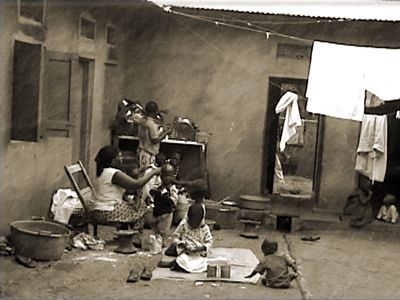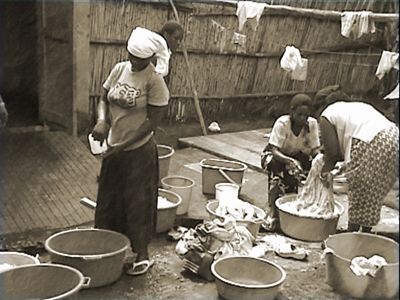History
Imagine
You’ve worked in a hospital for years. On the grapevine, you hear about a little girl whose mother has died in childbirth. Unless someone does something, the baby too will die. Yet nobody is doing anything. What about you? Walking home, your thoughts are racing: if you do nothing and the child dies, you will be responsible. But you can’t take on a new-born!
At your door is the baby’s father, at his wits end, begging for your help …
Fact not Fiction
That is no imagined nightmare from a Victorian tear-jerker. It’s all true. It happened to Dorothy Nzirambi. In 1984 she was 34 and worked in the canteen at Kagando Christian mission hospital near the Congo border in SW Uganda.
Dorothy felt that God was telling her to care for the baby. But she didn’t know how …
She took the child from the father, laid her on the bed and prayed. “Here is this child — I have nothing to give her. Bring manna from heaven for her just like you fed the Israelites in the desert”. She went to the Maternity Ward, and found six women with premature babies. They blamed "spirits" for the mother’s death, and feared those spirits would turn on anyone who breastfed her child. Gradually, Dorothy persuaded them each to express some of their milk and, between them, to fill a glass. This she took to feed the baby.
God’s Work
News got round that Dorothy was looking after someone else’s baby, and she was asked to take on other motherless children — so “Dorothy’s Orphanage” was born.
For more space, she moved to a house in nearby Kisinga village; and her sister Milly began to help with administration. As Dorothy cared for more and more children — soon there were 24 — she struggled to provide even basic food and beds, let alone healthcare and schooling. The property at Kisinga wasn't ideal for lots of children, but it was all Dorothy could manage.
Deep down, she knew that if it was God’s work, He would find the way for her. But how?
Prayers Answered
Fast forward to 2009. A brand new orphanage is being built on a spacious, "greenfield" site near Kabirizi, with separate bungalows for individual "house mothers" who will each care for up to 10-12 children. The scheme is being funded by a UK charity (now NOTDEC UK). Better still, the charity has found sponsors who are already making monthly payments to cover the costs of all 67 children currently in Dorothy's care. And they have promised to find sponsors for any new babies and children up to a maximum of 100. God is good.
The Nightmare Returns
Come 2012 and the new orphanage is full. NOTDEC UK is sponsoring 100 children — the agreed limit. But more motherless babies are brought along. Again this is a true story — now Dorothy and Milly’s story. What should they do?
After much soul-searching, they decided to hold to the agreement with NOTDEC UK and stop at 100 children. They turned away the babies — four of them.
Every last one died.
Dorothy was distraught: she couldn’t do this. Nor Milly — not turn away babies with no-one to look after them. Soon, NOTDEC Uganda had 120 children — and NOTDEC UK was looking for more sponsors. And, very soon, NOTDEC UK had found the extra sponsors.
The Lord Will Provide
It doesn’t end there. The number of babies needing to be cared for keeps on growing. For more recent information, see The Baby Boom.
No orphanage can take limitless numbers. The current one was designed for 100 children, its nursery can only cope with so many, and we don't have unlimited funds. In line with the requirements of the welfare authorities, NOTDEC Uganda now places increasing numbers of the older children with their wider families — though still paying their school fees. Yet,despite this, there is an increasing need for places at the orphanage itself for the younger children. So, with God’s help, we’re praying and working together to figure out what He would have us do, and how the sums can be made to add up.
Join us — in prayer or as a donor — to help where it really counts.


